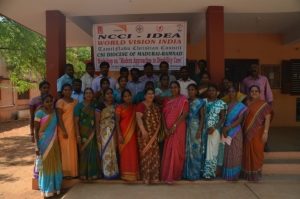Report on Two Days Workshop for Caregivers on ‘Modern Approaches to Disability Care’
National Council of Churches in India
Commission on Justice, Peace and Creation
World Vision – India
Engage Disability
Tamilnadu Christian Council &
CSI Diocese of Madurai-Ramnad










Leave a Reply
Want to join the discussion?Feel free to contribute!